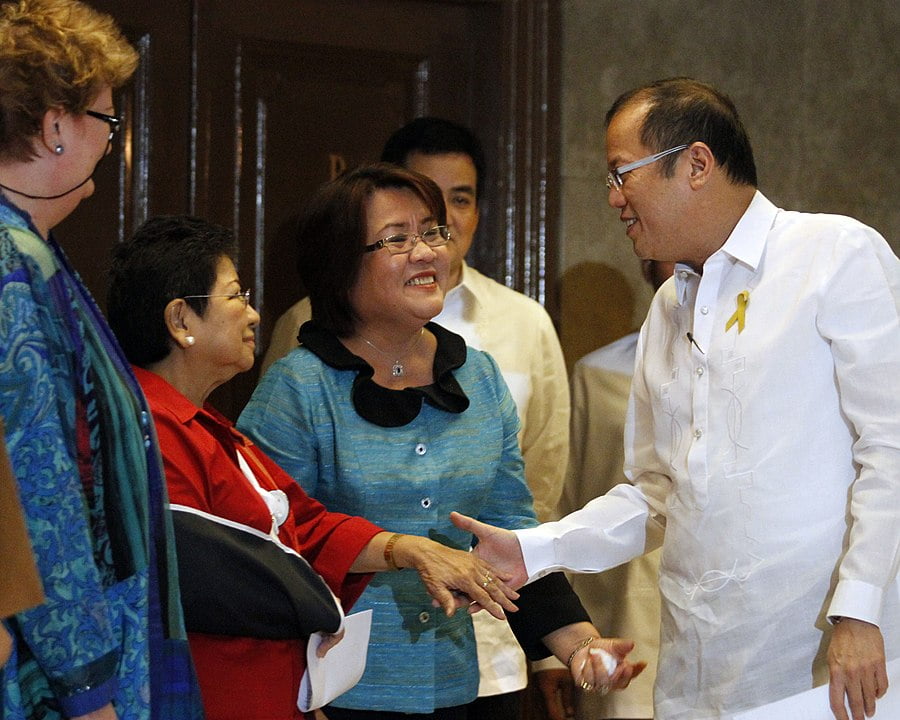🕓 Last Updated: February 13, 2023, 11:50 am (PH time)
Justice Secretary Leila de Lima could be the most [com]promising nominee among aspirants to become the next chief justice of the Philippine Supreme Court. The chief justice nominee from the Aquino administration that vigilant Filipinos may call for her disqualification or outright rejection from the chief justice wannabes list.
Why disqualify de Lima and why not?
Firstly, Leila de Lima is among the trusted cabinet members of the Aquino administration. Does this amount to her disqualification? No, but out of delicadeza, de Lima should have rather declined her nomination long before she knew she have gotten five endorsements for the post. Imagine that.
Secondly, de Lima has a disbarment complaint filed by Atty. Sundiam. Does this, again, amount to her disqualification? Technically, no. Because only the Supreme Court can decide how the disbarment complaint faced by Sec. de Lima be taken into considerations.
But a disbarment complaint is considered as grounds for disqualification according to the Judicial and Bar Council (JBC) rule 4 of Section 5.
Now, what should be the yardstick for the JBC to shortlist nominees?
JBC may under a dilemma
Before, JBC shortlisted nominees based on the JBC Rule 009 (reference on Archive). It retaliates the following basic qualifications for a nominee:
1. statutory qualifications;
2. competence;
3. integrity;
4. probity;
5. sound physical, mental, and emotional aspects.
From here, the long list of nominees shall be born. Sec. de Lima was nominated by five recommending parties and she accepted it.
Now, because the JBC has modified its selection process by making it a televised one, or making it more transparent to the public, nominees are deemed to be exposed to public opinion and prejudice.
Leila de Lima, perhaps, will likely play a devil’s advocate if and only if JBC sticks to their commitment to rigorously screen nominees up to their last drop of integrity, probity, competence, and leadership beyond doubt.
Would de Lima instead back off this time? Definitely, no; not yet been born in her mind to step back from the challenges, we graciously surmised it.
Then, what happens when the Supreme Court allows de Lima despite the disbarment complaint?
Or what now if the JBC includes her in the shortlisted nominees?
What happens next would be for Sec. de Lima to run laughing out loud all her way into the Supreme Court.
After her “deeper reflection” De Lima is a political ploy?
The nomination journey of Sec. Leila de Lima from DOJ to SC appears to be a booby trap for critics of the Aquino administration that will eventually serve as a vehicle for Aquino to earn back the waning trust of many Filipinos.

Conversely, it can also be inferred that President Aquino is in dire need of obedient chief justice. Sec. Leila de Lima could be the best fit.
Meanwhile, her acceptance to the nomination has been made after her deeper reflection and further consultations with, De Lima said.
According to her, the judiciary needs an effective and trusted leader and that to her is the call of time, a report wrote.
De Lima, the report continued, would be honored to submit herself to the scrutiny of her peers at the JBC and the general public.
“Being obedient is being trusted”
Sec. de Lima may know that being obedient does not correlate to being effective. But in her text message statement, she said being obedient does correlate to being trusted.
She continued to describe herself as having character and resoluteness as a person and a track record of having a passion to serve the public.
But for integrity, competence to interpret laws based on constitutionality, and probity wise, Sec. de Lima appears an outright failure. Why?
Because simply defying a simple Supreme Court’s decision just because of simply invoking the inherent police power of the state and simply being careful not to be blamed should then-president Arroyo fail to return to the country isn’t my goodness an exercise of integrity, probity, and competence to interpret laws, is it? Instead, it is being obedient.
In an online report, for Associate Justice De Castro, the way Sec. de Lima interpreted the law showed that the DOJ secretary was more powerful than the [Supreme] court.
Then what Sec. Leila de Lima is for? From this point of observation, de Lima is a “tactical pretense” to gain back the trust and confidence of the Filipinos should President Aquino dismiss her from the choices. Or it could be likened that Aquino badly in need of a chief justice so obedient for all his wishes. ▲
The views and opinions expressed in this article are those of the author and do not necessarily reflect the official policy or position of any affiliated organization, employer, or institution. The author bears sole responsibility for the content.

Regel Javines is the founder and editor of Philippine Pundit. Born in Leyte and shaped by struggle, he writes truth from the margins—where politics, faith, and life converge. A blogger since 2011, his work has appeared on global citizen journalism platforms. He currently serves as a consultant for the House of Representatives’ Congressional Assistance, Response, and Education (CARE) Program and as a Project Development Officer II at the DSWD.